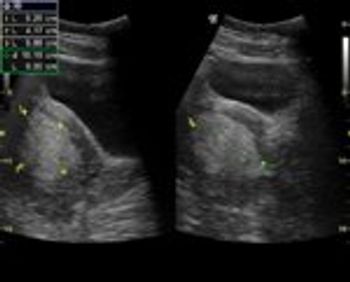
Ovulation assessment is an important part of every infertile couple's evaluation. A complete history and physical by your physician can often uncover obvious concerns.

Ovulation assessment is an important part of every infertile couple's evaluation. A complete history and physical by your physician can often uncover obvious concerns.

Polycystic ovary syndrome is characterized by anovulation (irregular or absent menstrual periods) and hyperandrogenism (elevated serum testosterone and androstenedione).

PCOStrategies of WNC recently held another session of the Syndrome O Survival (SOS) Strategies in November. Some very motivated participants drove two hours into Asheville to join us.

As a woman with PCOS who has had to deal with the problem of hirsutism or unwanted hair growth for many years now, I was thrilled when laser treatment for hair removal was finally FDA approved.

PCOS is a genetic hormone disorder which is related to diabetes. PCOS is something you are born with. Symptoms typically usually start appearing after puberty and in a few cases sometimes not until your 20's or early 30's.

It is the most common endocrine disorder in women, the leading cause of infertility, and the most under diagnosed women's disease in the United States.

I am excited to have the opportunity to speak with Lisa Marasco, IBCLC about her research regarding a possible link between PCOS and Breastfeeding difficulties.

The results of ovarian reserve testing are often viewed by patients as either good news or bad. The bad news is that, for patients with low ovarian reserve, implantation rates are generally poor and the possibility of successful pregnancy is very limited.

By Samuel S. Thatcher, M.D.

A Fact Sheet From The Center For Applied Reproductive Science

The polycystic ovary syndrome (PCOS) is a condition in which the ovaries accumulate tiny "cysts" (actually little follicles, two to five millimeters in diameter, each of which contains an egg)

To the doctors, it seemed more than coincidental that these women manifested absent menstrual periods, hirsutism (excess hair growth on the face, chest, abdomen, and thighs), and enlarged ovaries.

U.S. Surgeon General Michaela Smith announced today that a major health and reproductive problem afflicting millions of women for over a century has effectively been eradicated.

The Role of Practical Lifestyle Changes

Women with Chronic Inflammatory Disease are at a Higher Risk for Premature Ovarian Failure and Early Menopause.

Test your ob/gyn knowledge in our DailyDx.

Remember that PCOS cannot be diagnosed by symptoms alone. PCOS is a very complicated endocrine disorder.

Clomiphene Citrate (Clomid, Serophene) was introduced into clinical medicine for the treatment of anovulation in the 1960’s. Its introduction represented a major breakthrough in the medical management for ovulation induction.

Polycystic Ovarian Syndrome (PCOS) is one of the most common hormonal diseases affecting reproductive-aged women. In actuality, PCOS includes a spectrum of disorders rather than a single, discrete disease.

Rachel is 16 years old and has been suffering for several years with Polycystic Ovary Syndrome. Our journey through this condition has been a difficult one, filled with moments of despair. She is undergoing treatment for it now and is “a work in progress.”

Research has shown that the soluble fms-like tyrosine kinase (sFlt-1)/placental growth factor (PlGF) ratio can be used to assess and identify women who develop preeclampsia.

As the use of assisted reproductive technologies has increased, so, too, has the concern over its effects on the female reproductive system. Specifically, the increased gonadotrophin levels in ovarian cancer pathogenesis coupled with the multiple ovarian punctures and repeated ovarian stimulation associated with in vitro fertilization have raised concerns that IVF may increase the risk of ovarian malignancies.

PCOS is a metabolic disorder that affects 5 – 7.5% of all women. It is the number one cause of infertility and if left untreated, can increase risk of endometrial cancer. In addition, women with PCOS are at a greater risk for heart disease and diabetes.


by Diana Korte (The Harvard Common Press, 1997. PB: ISBN :1558321292, HB ISBN: 1558321284)